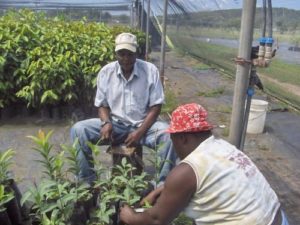
Speaking in an interview after the opening ceremony of a regional workshop at the Carlton Savannah, St Ann’s, Chesney said the region is importing too much food. “We are strategically trying to identify those commodities that we can do away with easily. We’ve identified about 12 commodities where the region can make a relatively rapid impact on the food import bill,” he said.
Chesney said CARDI is looking at commodities to reduce imports but there are challenges in achieving that goal.
“One of the challenges that we have is that a lot of the food import is processed products,” he said, although he expressed confidence that CARICOM (the Caribbean community) is doing its part in promoting the idea of food security to the member states. “In the last two or three years they have put a lot of the policies in place. In one instance, I understand, there are three investors from T&T in Guyana. Remember CARICOM is not a ‘doing’ institution, the activities (investment) has to take place at the national level. What CARICOM has to do is try to facilitate those activities at the national level along with the member States,” he said.
Chesney said not all the food on the import bill can be eliminated, but items such as poultry, roots and tubers, fruits and vegetables, sheep and goat can be eliminated to achieve an acceptable level of food security. Asked whether there was enough political will by the leaders of the CARICOM member states, he said there is need for a greater percentage of national budgets to be allocated to agricultures. Chesney said CARDI plans to pilot a project on coconuts in 2015.
Source: guardian.co.tt


